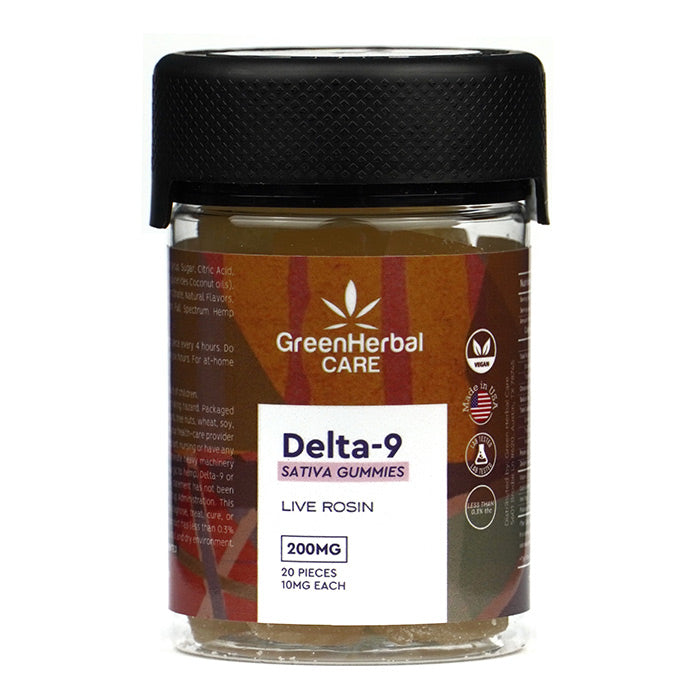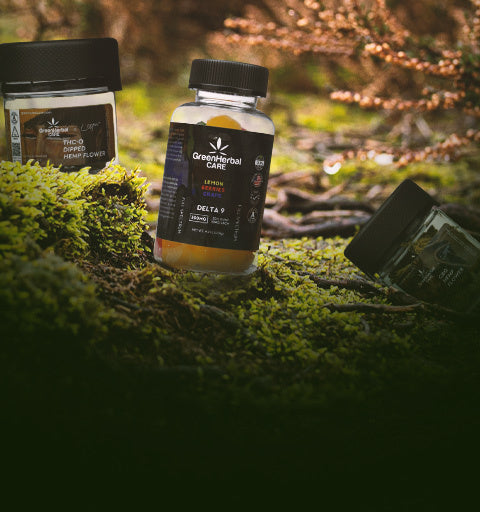CANNABINOIDS
Cannabinoids are compounds found in cannabis and hemp plants. The most notable cannabinoid is the phytocannabinoid tetrahydrocannabinol Delta-9 THC, commonly known only as THC, the primary psychoactive compound in cannabis. Cannabidiol (CBD) is another major constituent of the plant. At least 113 distinct cannabinoids have been isolated from cannabis.
Classical cannabinoids are structurally related to THC.

Cannabinoids are a group of terpenophenolic compounds secreted by hemp flowers that help enjoy various wellness benefits. They operate by imitating the bound natural endocannabinoids, which assist in maintaining internal stability and overall health.
When consumed, cannabinoids bind to receptor sites throughout the brain (CBT receptors) and body (CB2 receptors). Different cannabinoids have different effects based on their binding affinity for each receptor.
THC (Delta-9 tetrahydrocannabinol)
THC is one of the more familiar cannabinoids due to the notoriety of its intoxicating effects. How does THC manage to do that? It binds to both CB1 and CB2 receptors, making it the most powerful of the bunch.
THC
TETRAHYDROCANNABINOL C21H30O2
TRADE NAME: MARINOL
PSYCHOACTIVE
Tetrahydrocannabinol (THC) is typically the most abundant cannabinoid present in hemp products on the market today. THC has very high psychoactive characteristics and is associated with the euphoria experienced when using hemp products. When consumed, THC binds to cannabinoid receptors throughout the body, affecting memory, coordination, concentration, pleasure, and time perception.
BENEFITS
- It may help reduce pain
- It may stimulate the appetite
- It may help sleep better
- It may help you relax

CBG (cannabigerol)
CBG is only found in trace amounts in the hemp plant. Its precursor is CBGA, the foundational molecule for all other cannabinoids. It is a non-psychoactive compound that binds directly to both the CB1 and CB2 receptors. We still don’t know much about CBG and its potential.
CBG
CANNABIGEROL C21H30O2
NON-PSYCHOACTIVE
Cannabigerol (CBG) is found in higher concentrations in hemp rather than in the varieties of cannabis cultivated for high THC content. Most cannabis strains will only have trace amounts of CBG below one percent.
CBG has been shown to relieve intracellular pressure, which may benefit glaucoma patients and be effective against inflammatory bowel disease.
BENEFITS
- It may help reduce inflammation
- It may stimulate cell growth
- It may help lower high blood pressure
- It may prevent bacteria growth

THCA (tetrahydrocannabinolic acid)
CBG is only found in trace amounts in the cannabis plant, but its precursor is CBGA, the foundational molecule for all other cannabinoids. A non-psychoactive compound that binds directly to both the CB1 and CB2 receptors, we still don’t know much about CBG and its potential.
THC-A
TETRAHYDROCANNABINOL C21H30O2
NON-PSYCHOACTIVE
Tetrahydrocannabinolic acid, popularly known as THCA, is one of the hundred cannabinoids found in hemp plants. It is the acidic form of THC, with just a slight difference; it is not psychoactive like its sibling.
THCA essentially originates from CBGA as the hemp plant starts to get matured. With the presence of an extra molecular carboxyl ring, it cannot bind with the endocannabinoid receptors, hence not being able to produce psychoactivity, unlike THC.
BENEFITS
- It may help relieve inflammation
- It may help reduce arthritis discomfort

CBD (cannabidiol)
CBD may be the second-most prominent cannabinoid within the hemp plant, but it’s being used in everything from supplements to smoothies. Its therapeutic properties make it highly popular. CBD interacts with the body’s endocannabinoid system (ECS), which regulates different bodily functions like sleep, mood, and pain perception.

CBD
CANNABIDIOL C21H30O2
TRADE NAME: EPIDIOLEX
NON-PSYCHOACTIVE
Cannabidiol (CBD) is a major phytocannabinoid and accounts for up to 40% of the plant’s extract. Due to its lack of psychoactivity and non-interference with motor and psychological functions, it is a lacing candidate for a wide variety of therapeutic applications.
BENEFITS
- It may help reduce inflammation
- It may help reduce pain
- It may help reduce seizures
- It may help calm the mind
CBN (cannabinol)
CBN can produce a psychoactive response, but only marginally compared to THC. It is because CBN is THC that has been broken down after long-term exposure to oxygen. It is why older hemp may lose potency as THC decreases and CBN increases.

CBN
CANNABINOL C21H30O2
PSYCHOACTIVE
Cannabinol (CBN) is a weak psychoactive cannabinoid. It is found in higher concentrations in degraded or oxidized hemp products and can indicate their age or poor handling. Although there is little research, high concentrations of CBN are associated with undesirable side effects such as confusion and light-headedness.
BENEFITS
- It may help reduce pain
- It may help reduce inflammation
- It may aid in better sleep
- It may reduce convulsions
Shop By Cannabinoid


CBD
This non-psychoactive natural cannabinoid offers various therapeutic properties. It helps relax the mind. It may reduce inflammation and pain and suppress seizure occurrences.


CBG
Like CBD, it is non-intoxicating and may help fight nausea, pain, and inflammation. While there is a lack of research, CBG may be a potential ingredient in treating inflammatory bowel.


DELTA-8 THC
Delta-8 is mildly psychoactive, unlike its sister Delta-9 THC. It produces a euphoric feeling, but nowhere as intense as Delta-9. It makes for more relaxing sessions.


DELTA-9 THC
It is the classic THC you know about. Delta-9 THC is highly potent and responsible for strong euphoric sensations, as close as possible to a spiritual high.


DELTA-10 THC
Relatively new, Delta-10 is an isomer of Delta-8 and Delta-9 and induces a hybrid effect, a combination of soothing and uplifting euphoria.


HHC
One of the newest-found hemp-derived elements, HHC is a natural phytocannabinoid with 70-80% more potency than Delta-8 and Delta-9. Its relaxing properties make it worthwhile.


CBN
Cannabinol, popularly known as CBN, is derived from hemp’s primary chemical THC. However, it is not as potent as regular THC.


THC-A
It is another THC-like substance. It is an acidic form of Delta-9 THC and is non-psychoactive upon ingestion. However, exposing it to heat can convert it into THC.



